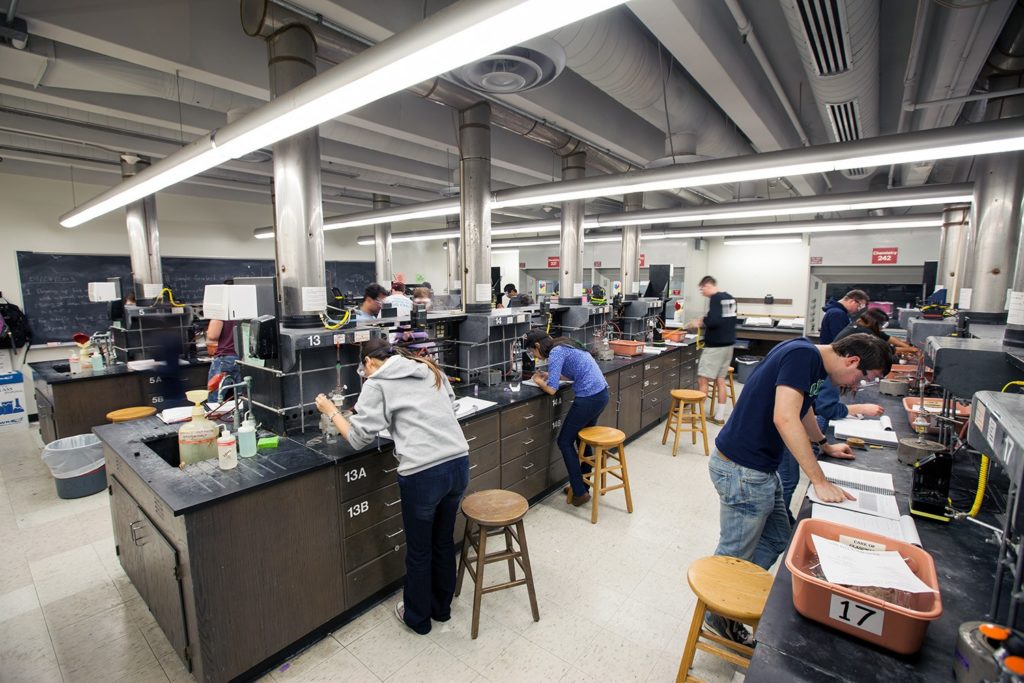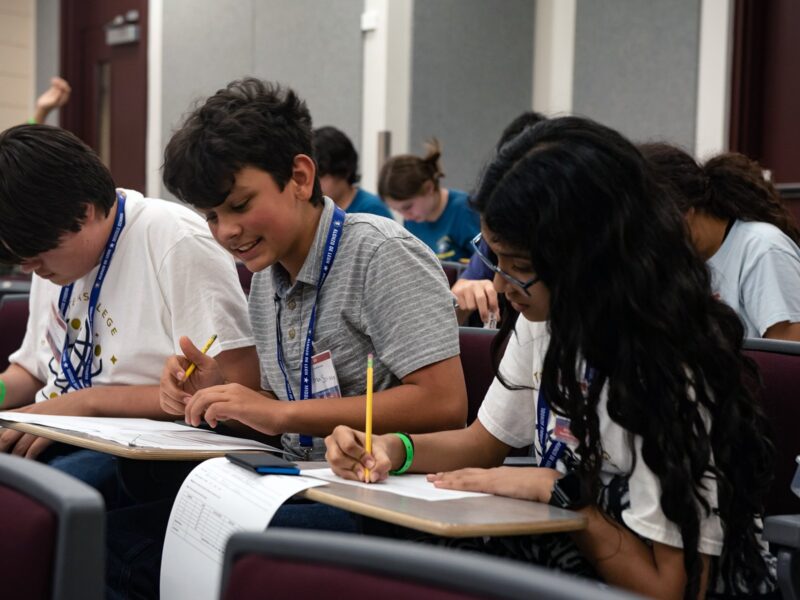Texas A&M Offers Online Tools To Help Students Succeed In Introductory Chemistry Courses

Thousands of students across the nation graduate from high school every spring with plans of attending college, but an alarming number of them are not adequately prepared for the rigorous courses that await them, particularly those in STEM.
In fact, fewer than 40 percent of high school seniors are deemed ready for college-level work, according to the National Assessment of Educational Progress (NAEP).
Fortunately, students set to take CHEM 101 and 107 at Texas A&M University this fall can spend time this summer preparing for the subject before they ever step foot into a Texas A&M classroom, thanks to the Department of Chemistry and McGraw-Hill’s online tutoring and assessment program ALEKS (Assessment and Learning in Knowledge Spaces).
“ALEKS is designed to start at your level of comprehension and move you forward,” said Dr. Timothy Hughbanks, associate head of Texas A&M Chemistry and director of its First Year Chemistry Program. “It’s a flexible system, and I think it will bolster their confidence. It’s a computer — there’s no one there to judge them.”
Developed in 1994 at the University of California, Irvine, with support from the National Science Foundation, ALEKS is an interactive, web-based program that quickly and accurately estimates a student’s strengths and weaknesses in a subject using artificial intelligence. ALEKS then provides instruction on specific topics and areas in which the students are struggling. Periodic evaluations ensure the material is mastered and retained, creating a personalized learning experience and ultimately a better-prepared student.
Chemistry Grad Student’s Research Reveals New Insight Into Protein Function
Hughbanks says students registering to take CHEM 101 and 107 in the fall will receive an email this summer directing them to the ALEKS website, where they will take an assessment that covers 137 chemistry-specific topics, including some mathematics and general science skills. An analysis report of their results will identify the areas that need improvement. The student is then provided learning modules where they can complete practice problems to raise their overall score.
In addition to ALEKS, students can access lecture videos on topics they need help with, as well as an online workbook with supplemental questions so that they can both follow along and hone their notetaking ability. Chemistry professors Ryan Bethel, Daniel Collins and Stephanie McCartney conceptualized and produced the videos and workbook, which will be housed on Texas A&M’s online learning management system, eCampus.
Texas A&M Chemistry is the latest entity within an increasing number of higher education institutions taking proactive measures intended to better prepare their students for collegiate success, from requiring online and individually customizable refresher courses to providing study strategies, networking tips and soft skills training.
For good reason, McCartney says, given that two-thirds of the approximately 5,500 students who sign up for freshman chemistry at Texas A&M each fall have taken only one year of high school chemistry at most. In addition, the typical time lapse since having done so is more than two years. She says Texas A&M Chemistry’s adaptive learning model will give all incoming students, prepared and otherwise, the opportunity to review course material at their own pace and improve their learning outcomes this fall.
“We notice which students need help more than others,” McCartney said. “If we’re going to increase their quality of learning and the grades they’re getting, it’s best to help them on the front end of things, rather than try and help them catch up later in the semester.”
Hughbanks says such early intervention not only ensures a better overall learning experience, it also goes hand-in-hand with improving student retention, both in individual courses and as science majors.
“When students get behind, they get discouraged, they don’t do as much work and they give up,” he said. “Our goal is to keep more students from slipping through the cracks early in the semester.”
Although the ALEKS assessment will only be available through the summer and first two weeks of the fall semester, McCartney says the instructional videos and workbook will remain accessible year-round. All resources are offered free of charge, and users will be prompted to submit feedback so that continuous improvements can be made.
Texas A&M Chemistry’s adoption of ALEKS represents the latest in educational efforts beyond both classroom and campus borders intended to benefit all Texas A&M students taking introductory science and mathematics classes through the College of Science, which logged a record 100,000 undergraduate course registrations during the past academic year. One successful example is the NSF-funded Personalized Precalculus Program (PPP), an innovative online short course offered by the Department of Mathematics since 2011 for students scheduled to take Calculus I. The self-paced module simulates a virtual classroom in which students can work on practice problems while interacting with tutors and peers.
Despite the numerous advantages of adaptive learning, which continues to grow in popularity as more colleges find ways to incorporate it into their curricula, Hughbanks says no amount of technology will ever be a viable substitute for authentic classroom lecture.
“We’re learning where something like this can be useful — and there are a lot of situations where it’s a good fit,” Hughbanks said. “But students still come here for the traditional college experience.”
To learn more about freshman chemistry at Texas A&M and related resources, visit http://www.chem.tamu.edu/fyp/.
###
This story by Chris Jarvis originally appeared on the College of Science website.



